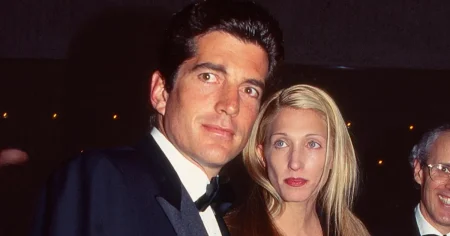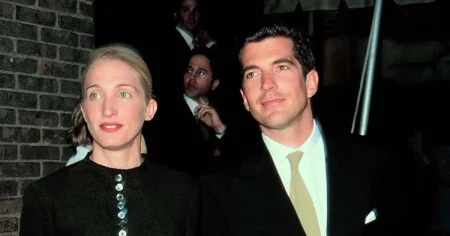Chrissy Teigen, a prominent figure in the social media landscape, recently sparked a conversation about our collective dependence on these platforms. Triggered by the temporary disruption of TikTok services in the United States, Teigen proposed a radical, yet thought-provoking solution: a nightly digital curfew, effectively shutting off social media access from 6 p.m. to 6 a.m. daily. Her rationale stems from a nostalgic yearning for a simpler time, a pre-social media era where life, in her perspective, was more fulfilling and less defined by online interactions. Teigen acknowledged her own immersion in the digital world, emphasizing that her proposal wasn’t just for others but a reflection of her personal desire to reclaim a healthier balance between online and offline existence. Her call for a digital detox resonated with many who grapple with the pervasive nature of social media and its potential to consume our lives.
The backdrop to Teigen’s proposal was the temporary blackout of TikTok in the US, a consequence of a then-impending ban. The situation unfolded dramatically, with users abruptly losing access to the popular video-sharing app. TikTok’s message to its users reflected the gravity of the situation, indicating a government-imposed ban was in effect. This temporary disruption sent ripples through the online community, highlighting the significant role TikTok plays in the lives of millions, particularly younger generations. The ban, although short-lived, served as a stark reminder of the potential for external forces to control access to digital platforms and ignited discussions about free speech and online censorship.
The resolution of the TikTok ban, though fleeting, offered a temporary reprieve for its users. The app’s reinstatement was announced with a statement acknowledging the intervention of then-President Trump. TikTok expressed gratitude for the restored service and emphasized the platform’s importance to both individual users and small businesses. The statement’s reference to the First Amendment and the fight against censorship underscored the broader implications of the ban and its potential to set a precedent for future restrictions on online expression. While the immediate crisis was averted, the underlying tension between national security concerns and the freedom of online platforms remained.
The TikTok saga unfolded against a backdrop of growing anxieties surrounding data privacy and national security. The app, owned by a Chinese company, faced scrutiny over its data handling practices and potential vulnerability to influence from the Chinese government. These concerns fueled the push for a ban, reflecting a broader global unease about the power and influence of tech giants, particularly those originating from countries with differing political systems. The incident underscored the complex intersection of technology, politics, and national security in the digital age.
Teigen’s commentary, while spurred by the TikTok situation, transcended the specifics of the app’s temporary ban. Her message resonated with a wider sentiment of digital fatigue and a growing recognition of the potential downsides of constant connectivity. The proposed digital curfew, while unlikely to be implemented on a widespread scale, sparked a valuable dialogue about the need for boundaries in our digital lives. Teigen’s candid admission of her own struggles with social media addiction added a layer of authenticity to her message, making it relatable to many who struggle with similar challenges.
The incident, coupled with Teigen’s commentary, highlighted a broader cultural shift in the perception of social media. While these platforms initially promised connection and community, they have increasingly become associated with anxiety, addiction, and the erosion of real-world interactions. The temporary disruption of TikTok, even briefly, served as a stark reminder of our dependence on these platforms and the potential consequences of unchecked digital consumption. Teigen’s call for a digital detox, though seemingly radical, encapsulated a growing desire for a more balanced and mindful approach to our online lives, a sentiment likely to resonate for years to come. The incident sparked conversations not merely about a single app but about the larger role of technology in shaping our lives, our relationships, and our very sense of self.














